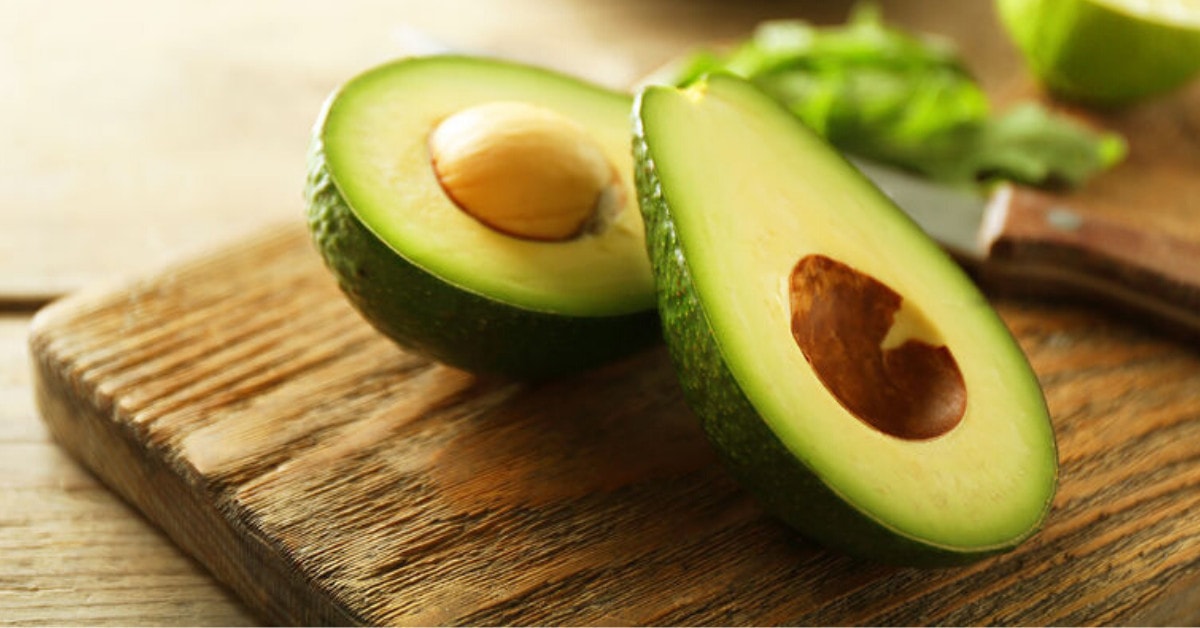Avocado is rich, creamy, and single-seeded fruit with a mild flavor. Scientifically, it is known as Persea Americana belongs to the family of Lauraceae. There are dozens of varieties of avocados, ranging in size, color, and texture. All are native to tropical climates, and when harvested, the flesh softens to a buttery texture that has become extremely popular.
Avocados are known as nutrient-dense food. They are a powerhouse of nutrients such as:
- Fats – They are full of monounsaturated and polyunsaturated fats, known as good fats. Avocado consumption is linked to lower levels of bad (LDL) cholesterol.
- Vitamins – Avocados rich in vitamin B, vitamin C, vitamin E, and vitamin K.
- Fibers- Avocado packs about 1 gram per tablespoon, with around 10 grams in a fruit. They are rich in digestive fibers.
- Minerals-Avocado Contains folate, calcium, magnesium, and sodium.
- Antioxidants-Avocado is one of the best fruits which has a lot of antioxidants.
Health benefits of an Avocado
1. Anti-inflammatory Properties
Avocados are rich in anti-inflammatory properties that help to reduce the body’s internal inflammation. It is the best source of omega-3 fatty acids, phytosterols, and plant hormones such as beta-sitosterol and stigmasterol. They help to keep inflammation under control. The fats present in this fruit are unique, which help lubricate joints and further relieve joint pains.
2. Helps to Lose Weight
The most popular benefit of an avocado is that it helps to reduce weight. It is used widely in weight loss diets due to the presence of dietary fibers. It controls your weight by keeping you full longer and making you eat fewer calories.
3. Keep Your Heart Healthy
Avocado contains a natural plant sterol called beta-sitosterol. Regular consumption of beta-sitosterol and other plant sterols help to maintain healthy cholesterol levels. They also keep your heart arteries and veins healthy.
4. Regulates Blood Pressure
Avocado is a good source of minerals, especially potassium and sodium, that keep your blood pressure stable. Stable blood pressure helps stave off the risk of heart attack or stroke.
5. Great For Vision
Consuming an avocado in your diet is beneficial for your eyes. They are full of antioxidants and beta-carotene that are beneficial for the eyes. Avocado contains lutein and zeaxanthin-two phytochemicals they protected to help minimize damage, including from ultraviolet light. The high amount of vitamin A in it also helps reduce the risk of macular degeneration that develops with old age.
6. Improves Digestion
Avocados are full of digestive fibers to keep your gut system healthy. Fiber adds bulk to the stool, which facilitates bowel regularity, thereby enhancing digestion. They help to prevent constipation, indigestion and lower the risk of colon cancer.
7. Essential For a Healthy Pregnancy
Avocados are a good source of folate. Pregnant women must include avocados in their diet as folate helps healthy fetal development and reduces the risk of miscarriage and neural tube defects.
8. Reduces Depression
The presence of folate in this fruit may help to reduce depression. It helps prevent the build-up of homocysteine, a substance that can impair circulation and delivery of nutrients to the brain. It also regulates sleep and mood patterns.
9. Keeps Your Skin Shiny
Avocado may be a natural way to fight signs of aging .This superfood is packed with antioxidants like vitamins C and E, which can help protect your skin from damage caused by free radicals.
Avocado is a powerhouse of various nutrients such as vitamins, minerals, antioxidants, and fatty acids. Hence, it is essential for healthy skin. They are mainly rich in vitamin C and vitamin E giving your skin a natural glow.
Add Avocados To Your Diet
Now that we know how avocado benefits you, here are a few simple avocado recipes to add this amazing fruit to your regular diet:
Beauty recipes:
- Hair masks: The oils in avocados are so potent they can penetrate the hair shaft to moisturize it rather than sitting on top of the hair. Plus, healthy fats help prevent hair breakage.
- Face masks: The vitamins in avocados (specifically vitamins A, C, E, K, B6, riboflavin, niacin, folate, and pantothenic acid) fight against free radicals and can help minimize sun damage to the skin.
How much avocado a day should you eat?
Eat one-half to one avocado a day to reap the health benefits of the fruit. There are not many downsides to eating more than one avocado a day, though their high fat content might cause some stomach discomfort.

:max_bytes(150000):strip_icc()/A-New-Avocado-Variety-Could-Be-the-Fruit-of-the-Future-FT-1-BLOG0823-89b12bb617a64809bb00acfa7cc2c503.jpg)
Comments
Post a Comment